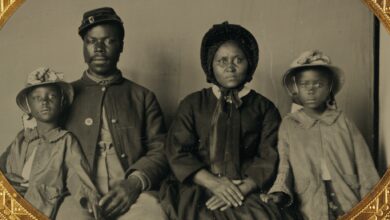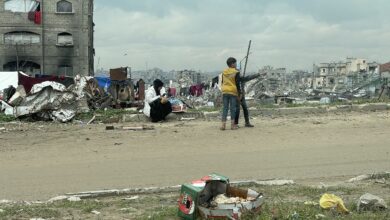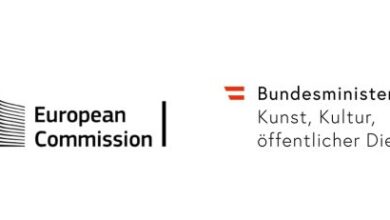
Lithuania is one of the most pro-European countries in the European Union and positions itself as strongly opposed to its biggest existential threat – Russia. However, when it comes to civil rights, the moral compass of the political elite sometimes points more towards the East than the West. This is particularly the case with LGBTQ people’s rights. A good example of how political homophobia works in Lithuania is the controversy around the book Amber Heart (Gintarinė širdis), created by the children’s author Neringa Macaitė (pen name Dangvydė) and published in 2013.
The book featured six fairy tales with unconventional characters from various stigmatized social groups. Two of the fairy tales included stories of same-sex love. Citing the section 4 § 2 (16) of the Minors Protection Act – the Lithuanian equivalent of the infamous Russian ‘gay propaganda’ law – certain organizations and politicians managed to get the book recalled from bookshops and eventually marked with warning signs about their content allegedly being unsuitable to children. The fairy tales were deemed to be an attempt at spreading ‘gender ideology’ and encouraging young children to enter homosexual relations.
The censorship took place back in 2014 and was heavily criticized locally and by international institutions throughout the years, including the January 2023 decision by the European Court of Human Rights in the case Macatė vs Lithuania. The Court stated that the restriction of the information on same sex relationships is ‘incompatible with the notions of equality, pluralism and tolerance inherent in a democratic society’.
Despite this decision, the Lithuanian Parliament voted in November 2023 to keep the Minors Protection Act as it is, including the section limiting information about same-sex relations.

Baltic Pride 2019. Image: Pavasario Aitvaras / Source: Wikimedia Commons
So why does Lithuania, which historically opposes Russia so strongly at the political level, sometimes continue to imitate Russian-style social policies and discourses such the infamous ‘gay propaganda’ law?
Censorship and moral panic
Originally published in December 2013 by the Lithuanian University of Educational Sciences with the financial support of the Ministry of Culture, Amber Heart quickly became the centre of a controversy. Certain non-governmental organizations and politicians had expressed their concern over the allegedly damaging content of the book. What appeared to worry them most were the stories about love between a prince and a male tailor who ‘held hands and exchanged loving glances while they walked in the royal garden’, and about a princess who ‘fell asleep with the shoemaker’s daughter in her arms’. The depiction of a committed relationship and marriage between people of the same sex was deemed to be potentially harmful to young children, distorting their sexual orientation.
The controversy began in March 2014 with an article in one of the biggest Lithuanian dailies Lietuvos rytas, which included responses from the author as well as opinions about the book expressed by the members of the non-governmental organization Lithuanian Parents Forum (LPF). In the article, Macatė was open about her homosexuality and her intention to promote tolerance towards LGBTQ people. The topic of same-sex relationships was not the only one addressed in the book – race, class and disability were also included in the didactic stories, intended for children aged between nine to ten years-old. Macatė had hoped that the book could reduce bullying at schools and foster acceptance of difference. These were also the reasons for the scientific reviewers of Macatė’s book to recommended that the University publish it in the first place.
The LPF, however, saw the book as manipulative and dangerous. ‘Various uncles and aunties who write those kind of fairy tales want to instil the image in the child’s mind that same sex marriages are possible. They want to normalize homosexuality,’ one LPF member told journalists. Such books might cause psychological problems for children, he said, adding that he did not believe that homosexuality can be inborn. ‘All this talk about homosexual children is made up,’ he argued. ‘I have never seen any research showing that homosexuality can be congenital.’ Another member expressed the belief that the book was a part of the campaign to ‘reprogram’ and ‘desensitize’ Lithuanian society and instil foreign, western values. A few days after the article appeared, the Ministry of Culture received a letter from a concerned individual, who claimed that the book ‘encouraged perversions’. Following this complaint, the Ministry ordered the Inspectorate of Journalist Ethics to evaluate the fairy tales.
Events then snowballed. Two weeks later, a group of Lithuanian MPs sent a letter to the University questioning the decision to publish the book. Within a week the rector recalled the unsold books from shops. In the meantime, the Inspectorate of Journalist Ethics concluded that two of the fairy tales included in the book could indeed have a negative effect on minors.
It based its decision on the section 4 § 2 (16) of the Act on the Protection of Minors from Negative Effects of Public Information, which states that information ‘which expresses contempt for family values, encourages the concept of entry into a marriage and creation of a family other than stipulated in the Constitution of the Republic of Lithuania and the Civil Code of the Republic of Lithuania’ is harmful to children. According to the Inspectorate, the ‘fairy tales that portray the relationship between same-sex couples as normal and self-evident are harmful to a child’s fragile, nascent worldview and are overly invasive, directive and manipulative’ It ordered the distribution of the book to be restricted and that copies be marked with a sticker stating that information contained in the book ‘may have a negative impact on persons under the age of 14’, or simply ‘N-14’.
Following the evaluation and the general pressure by certain politicians and organizations, the Ministry of Culture reprimanded the University and encouraged it to comply with the Inspectorate’s instructions. The University in turn handed a disciplinary penalty to the head of the publishing house and publicly expressed its regret at publishing the book.
Talking to journalists, the representative of the university claimed that Amber Heart was ‘a primitive and biased propaganda of homosexuality’ that should have never seen the light of day. ‘According to scientists, teachers and educators, children who are too young to have an interest in certain social issues, such as narcotic drugs or different sexual orientations, should not be forcibly exposed to information about them’, stated the university in its official response. Public libraries, which had received the copies of the book before the controversy started, were contacted by the university and asked to put the label ‘N-14’ on them. The rest of the copies were distributed to bookshops, which were also obliged to mark them with the labels. Refusal to do so could have resulted in a fine.
Opposition to the hate campaign
Shocked by the developments back in 2014, Macatė lodged civil proceedings in Lithuania, complaining about the suspension of the distribution of her book by the university and arguing that it was motivated by prejudice against same-sex couples. Her claims and appeals were dismissed. Quoting passages from Amber Heart, the Vilnius District court stated that the fairy tales could indeed have been seen as manipulating children: ‘As the child learns that people of the same sex can love each other, that “the heart wants what it wants and loves whom it loves” … it can be argued that this influences the formation of [the child’s] personality (including sexuality).’
The Lithuanian courts decided that the University had simply complied with the orders of public authorities, which were in turn empowered by the Minors Protection Act. As long as Lithuania did not recognize same-sex partnership in any form, any positive depiction of same-sex relationships or marriage could therefore be interpreted as constituting ‘contempt for family values’ and encouraging ‘the concept … of a family other than that stipulated in the Constitution and the Civil Code’, and thus be sanctioned.
After exhausting all legal means in Lithuania, Macatė took her case to the European Court of Human Rights, claiming that her rights had been violated according to the Articles 10 (freedom of expression) and 14 (prohibition of discrimination) of the ECHR. In January 2023, almost a decade after the original events, the Court found that the embargo and subsequent labelling of Amber Heart with ‘N-14’ stickers had indeed interfered with Macatė’s freedom of expression. The restrictions imposed by Lithuanian state institutions and substantiated by homophobic rhetoric had damaged Macatė’s reputation as a children’s author and potentially discouraged other people from writing on similar topics.
The Court did not find the contents of the book sexually explicit or potentially harmful to children, but that they promoted tolerance towards social diversity, as the author intended. Quoting various international documents, the ECtHR emphasized that information on same-sex relationships is not in itself damaging to minors but, on the contrary, that ‘it is the lack of such information and the continuing stigmatisation of LGBTI persons in society which is harmful to children’.
Sadly, Neringa Macatė, was unable to celebrate her legal victory – she passed away in 2020 at the age of 45, with her mother taking over the legal proceedings. Well known and beloved in the Lithuanian writer’s community and LGBTQ community alike, Macaitė did not lack support in her struggle against censorship. The year after the controversy and restriction on distribution, several Lithuanian NGOs came together to republish and redistribute the book. Amber Heart was also translated to English and is freely available online.
‘All these years Neringa defended not only her own dignity and freedom of speech, but that of the whole LGBT community,’ said Jūratė Juškaitė of the NGO Lithuanian Human Rights centre, one of the strongest advocates of Macaitė; ‘she did not agree that information about two people of the same sex who love each other can be harmful to children.’ Some of Macatė’s friends publicly wondered if the legal battles over her book, and especially the hate campaign that ensued after publication, might have contributed to her illness.
The homophobic attacks might indeed have been more damaging to her professional reputation as a children’s author than the restriction on her book. At the outbreak of the controversy, numerous commentators not only reiterated that the fairy tales could be seen as ‘propaganda of homosexuality’, but also implied that the author aimed to ‘distort the image of family and thus slowly and purposefully destroy the state’. To be named an enemy of the state is certainly not the kind of fame that every children’s author hopes for.
Minors protection or ‘gay propaganda’ law?
Despite being phrased non-specifically, section 4 § 2 (16) of Lithuania’s Minors Protection Act has until today only been applied to restrict the access of minors to any representation of LGBTQ people and same-sex relationships. Amber Heart was not the only instance of such censorship at this time – in 2013 and 2014 videos created by the LGBTQ organization Lithuanian Gay League (LGL) had also been censored. The first featured people of various sexual orientations (which they proudly declared) inviting society to drop stereotypes and join the upcoming Baltic Pride 2013 – the second gay pride march ever to take place in Lithuania. The national broadcaster informed LGL that they could only show this video with an ‘S’ (suaugusiems – for adults only) sign and broadcast it after 11 p.m. A year later, another publicity video by the LGL, featuring same-sex couples and people in various social situations and encouraging support for LGBTQ rights was censored by a commercial TV station.
The law also served as a pretext for the municipality of Vilnius to create obstacles for the organizers of the Pride march in 2010 and 2013. The same scenario repeated itself in Kaunas in 2021. After legal battle, however, Pride eventually took place in all cases. Vilnius has become welcoming to gay pride and other LGBTQ community events since the election of the new, more liberal leadership in 2016 (although the same cannot be said about Kaunas). But as long as section 4 § 2 (16) of the Minors Protection Act continues to exist, it cannot be taken for granted that a more right-wing government or municipality would not decide to implement it with full force and prohibit any public events which contain a pro-LGBTQ message.
This is what happened in Russia after the federal ‘gay propaganda’ law was passed in 2013. It is important to note that the first version of the law was proposed to the Duma back in in 2009, while some Russian provinces passed similar ordinances even earlier. One ended up being discussed in the European Court of Human Rights, after a gay activist was arrested in the city of Ryazan for holding a sign saying ‘homosexuality is normal’.
But it took a few years to ‘perfect’ the language of the law. The early version of the bill, discussed in the Duma, sought to criminalize ‘propaganda for homosexualism, lesbianism, bisexuality, transgender’. The final version, signed by President Putin, prohibited propaganda about ‘non-traditional relations’ among minors. This abstract formulation was crafted to potentially include anything vaguely related to LGBTQ activism and education, while also avoiding terms such as homosexuality and thus explicit discrimination, to appear to be in line with human rights standards. The passage of the bill increased both state persecution of LGBTQ activism and self-censorship of anything seemingly too ‘gay’: from a memorial to Steve Jobs to the rainbow imagery in the flag of one of Russia’s easternmost provinces. It led to an upsurge of hate speech, threats and violence motivated by homophobia.
The intensification of political homophobia was instrumental in bringing Putin back to power after popular support for him wavered during the 2008–2009 economic crisis. The crackdown on imaginary western enemies who allegedly aim to import to Russia ‘gender ideology’, ‘gay propaganda’ and feminism was supposed to restore masculinity and the moral righteousness of the nation (the Pussy Riot case is just one of the many examples). This strategy, together with the increasing prominence of the Orthodox Church in Russian politics, helped create the image of Putin as the defender of ‘Christian civilization’ and easily gain re-election in 2012.
Such processes took place not only in Russia. In the 2010s, all countries of the Eurasian Economic Union (EEU), an organization that unites the four post-Soviet states of Belarus, Kazakhstan, Kyrgyzstan and Armenia with Russia, introduced laws modelled on the Russian ‘gay propaganda’ law. In 2017, Amnesty International reported that the political, economic and cultural influence of Russia via the Russian-language media had significantly contributed to the rise of hate crimes against LGBTQ people and the general silencing of sexual minority activism in these countries.
Paradoxes of homophobia
The implementation of the changes to Lithuania’s Minors Protection Act in 2009–2010 can be seen as a part of the wave of state-sanctioned homophobia in the post-Soviet region. This might seem paradoxical. After all, unlike most of the members of the EEU, Lithuania is democratic and pluralistic, and puts a lot of effort into countering Russian influence and propaganda. Overall, it has a clear pro-western direction, most clearly expressed in its membership of the European Union and NATO. Lithuania has been one of the staunchest supporters of the Ukrainian cause and is a persistent advocate for stronger measures against Russia and increased military support from the West.
All of this is especially true for the conservative party Homeland Union – Lithuanian Christian Democrats (Tėvynės sąjunga-Lietuvos krikščionys demokratai, TS-LKD), one of the major parties in Lithuania. Born out of the anti-Soviet independence movement Sajudis, TS-LKD has always had a strong pro-European commitment and been clearly opposed to Russian influence in the country. But this is also the party that in 2009 launched the initiative to amend the existing Minors Protection Act to effectively prohibit the spread of information on same-sex relations.
Like in Russia, the initial draft of the amendment explicitly proposed limiting information that promoted ‘homosexual, bisexual and polygamous relations’. After public protests and criticism from the EU, the text was eventually changed. Again, like in Russia, explicit mention of homosexuality was removed; the law now refers to ‘family values’ and the concept of the family as it is enshrined in the Lithuanian constitution. But there is no doubt that the law was crafted to counter ‘gay propaganda’. Sure enough, the amendment has only been applied to limit information on same-sex relations.
The resemblances between section 4 § 2 (16) of Lithuania’s Minors Protection Act and Russia’s ‘gay propaganda’ law has proven uncomfortable for the TS-LKD, which has aimed to frame the legal provision as essentially ‘pro-European’. Conservative politicians such as the MP Mantas Adomėnas have argued that the protection of family and children is in line with authentic European traditions, and that limiting the spread of pro-LGBTQ information should be seen as defending ‘European Christian civilization’.
Russian discussions of the ‘gay propaganda’ law were also embedded in discourse on ‘traditional values’ and civilizational-Christian narratives. It is obvious, however, that the restriction of human rights of LGBTQ people and the freedom of expression in general is not compatible with the European values, which is why indeed the Lithuanian law (and the similar law in Hungary passed in 2021) has been criticized numerous times by various EU institutions, most recently by the European Court of Human Rights.
Although the Court’s decision is legally binding, the Lithuanian Parliament (where TS-LKD holds the majority) voted in November last year against the removal of the section of the Minors Protection Act that enabled the censorship of Macatė’s book. According to the MP from the Labour Party, the law is necessary to prevents children from being exposed to the ‘propaganda … about same sex partnerships and relationships’. On top of that, the president of Lithuania, Gitanas Nausėda, expressed his concern that changing the discriminatory law would ‘give a green light to degrade the family’.
The president’s rhetoric, like that of other populist politicians, clearly shows that the homophobic view of homosexual people as a threat to children and ‘family values’ still has strong political currency in Lithuania. This is manifested in never-ending debates regarding the proposed gender-neutral Partnership Bill, which would give same-sex couples at least minimal legal protection, but which never garners enough political support in parliament.
Unlike in Russia, homophobia in Lithuania is not directly fuelled and orchestrated by the state. Instead, it arises from a network of political, non-governmental and religious organizations and institutions (related to the Catholic Church in particular), all of which aim to exert influence on parliamentary politics and society at large. This can be seen most clearly in the case of Amber Heart and the intricate system of public indignation encouraged by NGOs and political pressure groups, the effect of which was institutional (self-)censorship.
Such moral panics are not unique to Lithuania, of course, and can also be seen in the light of the recent surge of anti-gender movements in Europe (which are generously supported by Russian money). And yet, it is impossible to deny that the censorship of pro-LGBT information in Lithuania in recent years has been made possible by a legal provision copied from the Kremlin’s masterminds. This situation seems unlikely to change any time soon.
Source link




